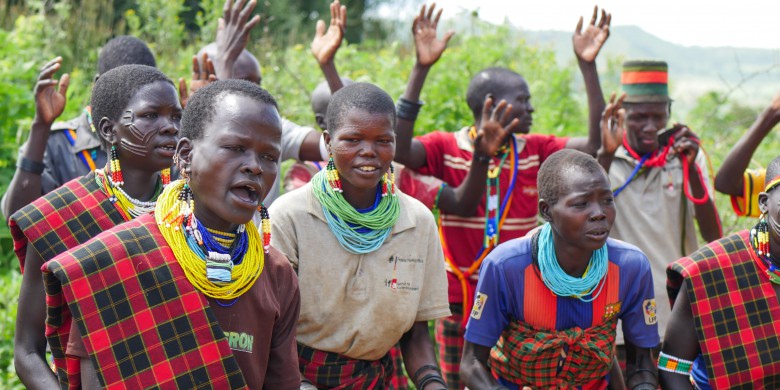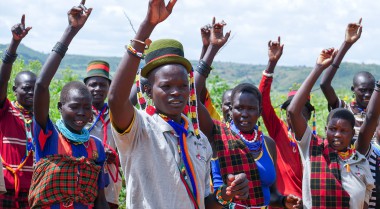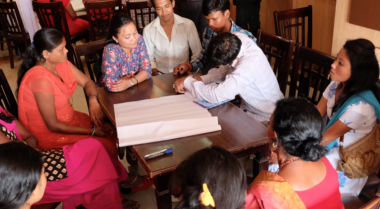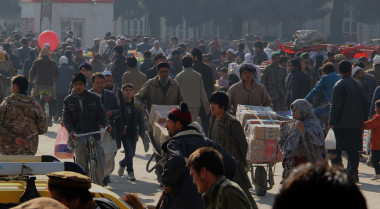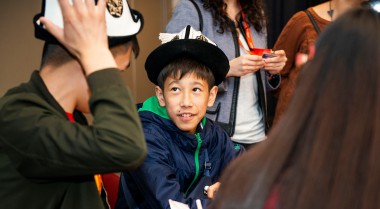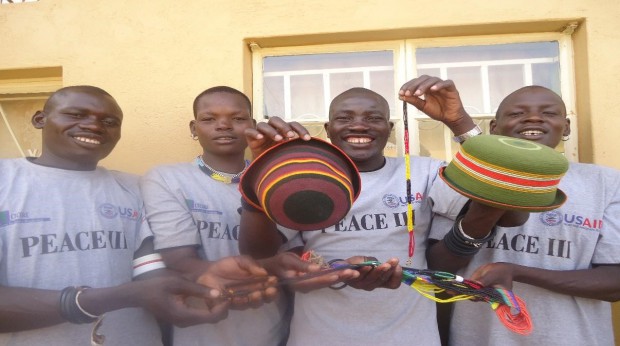
Disarming the Minds of War: The Story of a Peace Champion in Uganda
Cultivating a Path out of Conflict
Every Friday at school, Patrick and his classmates would smear cow dung on the ground, creating the flooring for them to sit on; sheltered by the thatched grass roofs, which were considered to be a privilege. It was not until the age of 13 that Patrick owned his first pair of shoes, some slippers. This coincided with owning his first bicycle and joining secondary school. Despite having to travel 20 kilometres each way, Patrick would cycle in his new shoes, with both his sister and neighbour in tow. The roads were almost impassable, and on rainy days they would not reach school until the morning classes had concluded.
Despite encountering chaos and poverty, Patrick maintains that there was always a smile on his face.
Whilst the dictatorial regime of Idi Amin had ended, the village of Buboko in Namayingo district was still plagued with violence and fear. Many rebel groups remained active in the Namayingo district and from 1986 onwards a civil war spread across Uganda. A particularly scarring memory for Patrick was the prominence of a group called the Holy Spirit Movement. Led by Alice Lakwena, her followers, convinced of her spiritual powers, would arm themselves with stones when facing the barrel of a gun. At other times they would pick up arms. Patrick recalls hiding in the bushes on numerous occasions from the gunshots of the Holy Spirit Movement when returning from school or collecting water from the well.
Despite encountering chaos and poverty, Patrick maintains that there was always a smile on his face. The early exposure to conflict and its aftermath have undoubtedly shaped his journey...and where did this lead him? To become a peacebuilder, helping those facing adversity, as he himself once did.
Barriers to Peacebuilding
As a child, Patrick recalls a story his father used to share. He would tell Patrick that he walked hundreds of miles during a time of war to reach the place where his brother had died, and on his own, he buried his brother, finally laying him to rest.
These values of perseverance and bravery are evident in the everyday commitment Patrick shows to his work.
“When you come home you breathe that sigh of relief… you ask yourself: should I really go back? But you end up answering yourself: you have to, because that is where your skills and passion lies.”
At CECORE, Center for Conflict Resolution, Patrick has been involved in projects in Karamoja, located in North-Eastern Uganda. The people in this region rely heavily on their cattle, which hold both symbolic and monetary value. The availability of firearms following conflicts increased violence between rival communities. This led to many cattle raids and, as a result, to the loss of many lives. In response, the Ugandan Government intensified the disarmament process with relative success. Despite this progress, Patrick found himself being exposed to the violence resulting from inter-communal conflicts.
On several occasions, accompanied by colleagues, Patrick headed towards Karamoja. On their way, they would face scenarios of ambush. Heavily armed men would jump on the road, blocking the pathway of the vehicle, relentlessly firing at the car. Bullets would hit the tyres, slowing their escape. Scared for his life, Patrick would hide beneath the seat to protect himself from the shots.
After reflecting on such life-threatening moments, we asked Patrick if he had ever questioned continuing his work as a peacebuilder...
“When you come home you breathe that sigh of relief… you ask yourself: should I really go back? But you end up answering yourself: you have to, because that is where your skills and passion lies.”
Despite having a wife and four children at home, Patrick continues every day to carry out the selfless act of giving back to his country, following his receipt of the gift of education.
His personal experience of the damage that conflict causes and his drive to help others, continues to motivate him- “violence destroys everything and then it blocks everything good from happening”. He dreams of a day in which there is real peace in Uganda and the whole of Africa.
A New Generation of Peace Champions
As a civil society organisation, CECORE goes beyond what the government is able to do in many rural areas across Uganda. For instance in Karamoja:
“The government has played a key role in disarming the communities...but is weak at disarming the mind”
On his visits to Karamoja, Patrick was faced with this harsh reality. Just taking away arms, will not lead to peace. At times, the youth would come up to him and say: “I wish I had a gun, because then I would be able to feed my family”. And things like: “we like peace, but you can’t eat it”. Therefore, CECORE realised it had to fill the void that was left behind in order to prevent a relapse of violence.
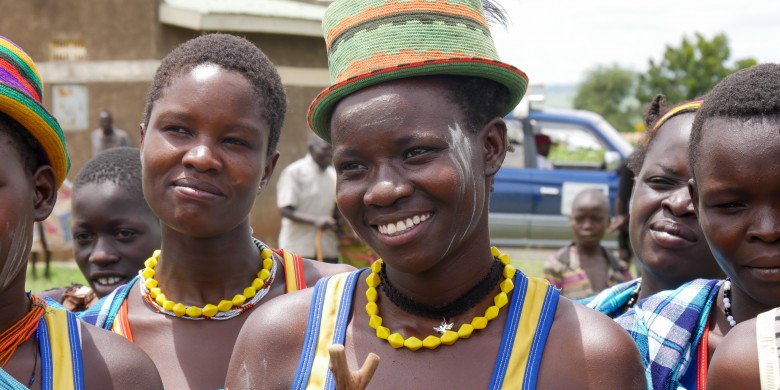
With the project ‘Building peace through young adult peace champions in Uganda’, CECORE addresses both root causes as well as driving factors of conflicts in Ugandan communities. They give young people skills in peacebuilding, while also training them to become entrepreneurs. Now, many young people in Karamoja are moving away from violence and also have the means to provide for their families. As youth leaders, they speak out against destructive ways and embrace dialogue for peace. And with much success: the young peace champions reconcile conflicting parties, support fellow youth and speak out against violence and practices like forced marriage. Another success is the steady decrease in cattle raiding across the region.
Patrick’s story is one of hope; showing that even when faced with violence and conflict, education and guidance can help youthful, passionate people like himself make a fundamental impact in the world of peacebuilding. A step towards his vision of a peaceful Uganda and Africa.
